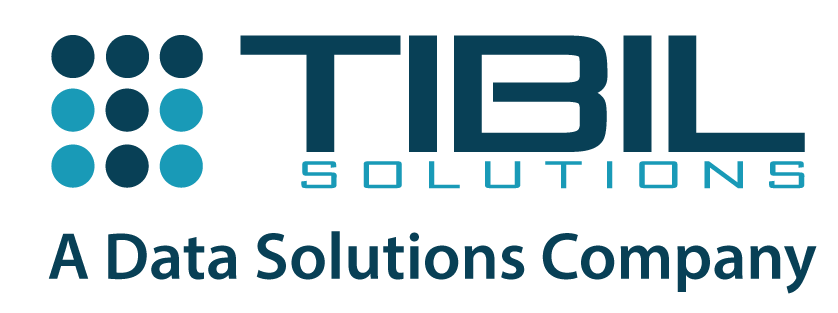
Augmented Data Management’s Impact on Advanced Analytics
Data has become a vital business asset for all types and sizes of organizations, which are rapidly realizing the fact that data management is pivotal to realizing the business value and unlocking potential. That’s why, over the past decade, businesses have been investing time and money in building a solid data strategy as well as data capabilities such as data governance, metadata management and data quality. With such strategies in place, much higher use of data at an enterprise level is expected. But this increase in the volume of data, its variety and the compelling need to gather as much data as possible, has made data management that much more complex and time-consuming.
Overloaded with the non-strategic tasks of data cleansing and processing, organizations are struggling to stay on top of their data and are finding it hard to scale their data management practices. They find themselves lagging behind in mining their data for insights, in providing adequate user access to users and in maintaining healthy data quality.
Research shows that data scientists spend 80% of their time in low-value tasks such as data collecting, cleansing and organizing, instead of high-value and more strategic activities such as developing data models, refining algorithms, data interpretation, and so on, that are directed at meeting business objectives.
To reduce this everyday hassle and improve data management, businesses are looking to incorporate AI/ML and analytics. Termed Augmented Data Management, this practice involves the application of AI to enhance and automate data management tasks based on sophisticated and specially designed AI models. Data management consequently takes less time, is more accurate and costs less in the long term. According to Gartner, by the end of 2022, we will see a reduction of 45% in manual data management tasks owing to machine learning and automated service-level management.
Let’s look at some of the challenges that we can expect Augmented Data Management to solve and the subsequent benefits.
Data Management Challenges
Large data volumes
Businesses have data pouring in from multiple sources and the amount of this data is getting too big to handle. They are finding it hard to aggregate, curate, and extract value from data.
Poor data quality
Enterprises typically have to work hard to bring the raw data they receive into a validated form fit for consumption. Their task is a tedious process that involves profiling, cleansing, linking and reconciling data with a master source.
Incongruent sources
Enterprise data is mostly obtained from multiple databases and other sources resulting in inconsistencies and inaccuracies. Be it internal or external data, there is no single source of truth.
Data integration is harder
With multiple data elements, huge data volumes, and disparate sources integrating data can be quite challenging no matter how large or experienced is the team of data scientists.
Augmented Data Management to the Rescue
Augmented Data Management, essentially, uses advanced technologies like AI/ML and automation to optimize and improve data management processes for an organization.
Better data
By applying advanced analytics techniques – such as outlier detection, statistical inference, predictive categorization and time series forecasting – instead of only statistical profiling, organizations can attain a higher quality of data, and do so faster than traditional methods. Augmented data management helps enterprises scan all sorts of data and its sources in real-time and churns up data quality scoring with the ability to track, manage and improve quality over time.
Master Data management
There’s a reason why Gartner discussed augmented data management as a strategic planning topic in its 2019 Magic Quadrant for Data Management Solutions. AI and ML models can be used instead of manual, hard-coded practices to match data and identify authoritative sources to verify data and create a single source of truth. ML-driven data discovery and classification will ensure authentic data tagging as soon as it is ingested and will also allow data scientists to perform duplicate data forensics.
Efficient data integration
Traditional statistical methods can be replaced with automation tools that make the process of analysing the data instances faster, simpler and more accurate, especially in the case of hybrid/multi-cloud data management and multi-variate data fabric designs. It also becomes easier to include new data sources and apply algorithms to build real-time data pipelines and bring all the data together for analysis.
Database management solutions
Database-as-a-service solutions enable automatic management of patching updates, advanced data security, data access, automated backups and disaster recovery, and scalability. Users can easily access and use a cloud-based database system without the organisation having to purchase and set up its own hardware or database software, or managing the database in-house.
Metadata management
Metadata management involves searching, classifying, cataloging and labeling or tagging data (both structured and unstructured) based on rules derived from datasets. Augmented data management AI/ML techniques to convert metadata so it can be used in auditing, lineage and reporting. Data scientists can examine large samples of operational data, including actual queries, performance data and schemas, and use metadata to automate data matching, cleansing, and integration, with the assurance that the data lineage is traceable and accessible by users.
Data fabric
We all know that data is available in a variety of formats and is accessed from multiple locations across the world, be it on-premise or in the cloud. Unfortunately, with several applications involved in the process, the data generated becomes increasingly siloed and inaccessible. Creating a data fabric provides enterprises with a single view of all that data via a single environment for accessing, gathering and analysing the data. Data fabric helps eliminate siloes, and improves data ingestion, quality, and governance, without requiring a whole army of tools.
Closing Thoughts – The Future of Augmented Data Management
Perhaps the main advantage of Augmented Data Management is that it allows enterprises to extract actionable insights without requiring too much time or resources. We believe that augmented data management will help streamline the distribution and sharing of data while mitigating the complexities related to extracting actionable insights from that data.
According to experts, augmented data management will support complete or nearly complete automation, where raw data will be fed into an automated pipeline and organisations will get back cleaned up data that can be applied to improve business. Enterprises can focus on strategic tasks that have a direct impact on the business while offering business recommendations. So in the future, we can expect augmented data management to pave the way for enterprise AI data management, thus democratising data access and use across teams and functions.
Related Posts
AI Toolbox: Creative Content Beyond ChatGPT & BARD
Introduction: In the dynamic landscape of artificial intelligence (AI), ChatGPT and BARD have garnered significant attention for their capabilities in natural language processing and music composition. However, a rich tapestry of AI tools exists...
Ethical Considerations in Generative AI: Ensuring Fair and Responsible Data Analytics
Introduction Generative AI, a transformative subset of artificial intelligence, is revolutionizing data analytics and machine learning. It empowers machines to generate data, images, and text that mimic human creativity. While the potential of...
Building a Better Future with Digital Public Goods
The world is on the cusp of digitization! In this era of digitization, we have transformed the way we communicate, interact, and access information. It has not only changed our personal lives but also has brought an evident transformation in the...
The Role of Artificial Intelligence in Cyber Security
In an era characterised by rapid technological advancements and increasing digitalisation, the field of cyber security faces an escalating and ever-evolving threat landscape. As cyber threats become more sophisticated, organisations must employ...
TinyML: The Future of Edge AI
Artificial intelligence (AI) has been a hot topic in recent years and with good reason. AI has the potential to transform countless industries and improve our lives in numerous ways. However, as powerful as AI can be, it also requires a lot of...
The Evolution of Federated Learning
Uber settled an inquiry into a data breach that exposed the personal data of more than 5,00,000 drivers in 2016 by paying $148 million. A GDPR breach resulted in a $57 million fine for Google in 2020. On-growing data privacy and data breach issues...
Subscribe To Our Newsletter
Lorem ipsum dolor sit amet, consectetuer adipiscing elit. Aenean commodo ligula eget dolor. Aenean massa. Cum sociis natoque penatibus et magnis dis parturient montes, nascetur ridiculus mus

Company
About us
Careers
Contact
Awards
Blog
Offerings
Strategy & Consulting
Managed Services
Solutions
Digital Public Goods
Solutions
Data Solutions
Industry Solutions







